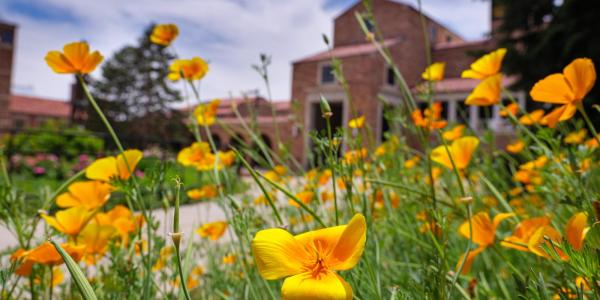The 12th annual TRANSforming Gender Conference will be March 8–10 on the CU Boulder campus. Hosted by the Gender and Sexuality Center (GSC), the conference is free and open to everyone. Attendees of the conference will learn about transgender experiences and issues, and workshops are for both those who identify as transgender and those who do not identify as transgender.
We sat down with Scarlet Bowen, director of the GSC, and Morgan Seamont, a trans man and assistant director of the GSC, to discuss what attendees can learn by attending the conference.
Keynote speakers
Chase Strangio
Thursday, March 8, 5:30–7 p.m.
Wolf Law, room 204
Strangio is a staff attorney with the American Civil Liberties Union (ACLU) LGBT & AIDS Project. His keynote address will explore the development of a trans rights discourse and the way our political and legal strategies have situated trans bodies in precarious ways.
Sam Bullington
Friday, March 9, 5–6:30 p.m.,
Wolf Law, main courtroom
Bullington is a college professor, shamanic healer and counselor, and founder and director of Phoenix, Colorado's Trans Community Choir. His keynote address will focus on the role of trans people in humanity's evolution and collective transformation, and draws from his recently completed book Transgender Wisdom: What I've Learned about Gender and Life from Living in the Grey Areas.
Kat Blaque
Saturday, March 10, 2–3:15 p.m.,
Wolf Law, main courtroom
Blaque is an animator, illustrator and YouTuber. With over 10 years of online activism under her belt, Blaque strives to facilitate educational conversations about social injustice, the importance of staying true to yourself and the consequences of online harassment.
What is the TRANSforming Gender Conference, and who should attend?
Bowen: This year there will be over 60 workshops, presentations and panels as well as three keynote speakers: Kat Blaque, Sam Bullington and Chase Strangio. There are political, legal and academic tracks, as well as workshops for educators about how to be more gender-inclusive in the classroom. We also have people from the community come to share best practices on health and wellness and trans-inclusive medical and mental healthcare.
The conference is a place to come learn, network and be supportive of the transgender community. When our students, staff and faculty come, they are seeking professional development and best practices, and there’s intellectually groundbreaking work that’s being done in gender studies.
Seamont: We talk a lot about political and activist movements, how to move transgender rights forward, especially during a time of transphobic legislation. A big focus for us over the last five years has been to bring speakers with intersectional identities.
We’ve had speakers who have shared how their trans or queer identity intersects with being disabled, undocumented or indigenous and how different racial identities and religious backgrounds intersect. We’ve worked really hard to gain an understanding of not just transgender identities but how other aspects of identity play into the LGBT community, as well.
What will attendees experience at the conference?
Seamont: With the wide variety of tracks and workshops, there’s something for everyone. This year, we have sessions on supporting families, empowering youth, transforming pedagogy, radical resistance, alternative trans narratives and how to create a more trans-inclusive workplace.
Additionally, there are beginning-level sessions, such as transgender 101, and more in-depth sessions discussing intersectionality. There are also sessions on political activism and how to get involved on campus and in your community.
What aspects are you personally looking forward to this year and why?
Bowen: I am most excited about one of our keynote speakers, Kat Blaque. Kat Blaque has a very significant presence on YouTube through her videos on gender diversity, sexual orientation diversity and intersections with race and class. I am teaching Introduction to LGBT Studies this semester and have incorporated many of her videos into my syllabus for the class. It’s almost like she’s co-teaching the course with me. My students and I are very excited to have her on campus and to be able to meet her in person.
Seamont: It’s always one of my highlights for the year, because it’s a great way to share all the advances that have been made both here at CU Boulder and at the national level for the trans and ally communities. It’s a unique conference that provides opportunities to support one another and feel supported on a bigger scale.
We are the only transgender conference in all of the neighboring states and, as far as I know, we’re the only Pac-12 school that puts on a gender-inclusive conference, so we’re also drawing a large, geographically diverse population. We’ve had students visit from Minnesota, Oregon and Washington and all of our neighboring states, which shows we’re bringing together an even more varied set of ideas, practices and voices to these important conversations.
Visit the GSC website to register and view the full schedule of events.



